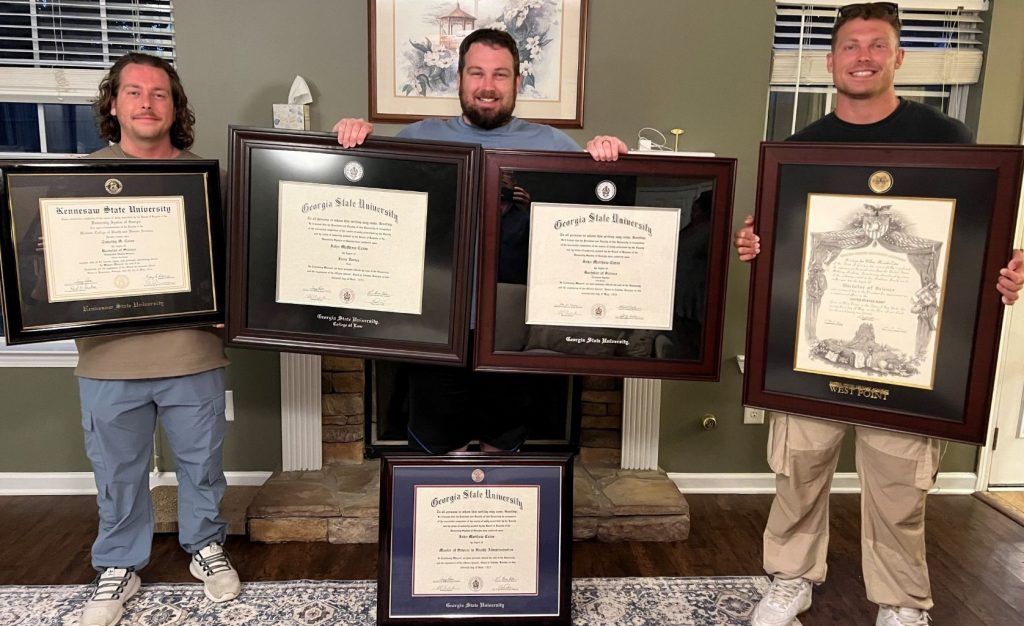

You thought you knew exactly which drawer you left it in or where your parents may have stored it after graduation, but it’s nowhere to be found: You lost your college diploma. It’s an all-too-common occurrence. The main problem is that most graduating students don’t stop to think about how much that delicate piece of paper is actually worth.
Luckily, whether it’s your master’s, PhD., or undergraduate program degree, receiving a replacement diploma is possible. While what it typically requires may differ based on guidelines of private universities, areas of study, and the type of college you attended, most schools offer a fairly straightforward replacement process.
Have you considered how much you’ve personally invested in your college education? Not just in terms of the tens of thousands of dollars you’ve paid (or that you owe in student loans) but the countless hours spent studying, the years of family sacrifice, and the blood, sweat, and tears that went into earning every grade. When you consider the true cost of your post-secondary education, you’ll quickly realize something extraordinary about that slip of paper you received at graduation, it’s absolutely priceless!
This realization can make the “I lost my diploma certificate!” moment that much more stressful, but also serves as a reminder to protect your degree before the possibility of it getting lost in the shuffle. Important degrees include your high school diploma, grad school degree, associate’s, and bachelor’s. These are all professional degrees that speak to your credentials and should be framed. And did you earn a doctorate? Make sure you protect and preserve as soon as you receive it.

It bears repeating: Your college diploma is one of the most valuable documents you’ll ever own. It’s why you should preserve it and protect it as soon as you receive it in the mail from your higher education institution. Important paper documents like undergraduate degrees, professional certificates, master’s degrees, and community college awards can easily get lost in an apartment or office move or destroyed by mold, flooding, or a fire in your home.
Probably the most common reason people need to replace their university diplomas is due to carelessness and improper storage. Most students don’t realize that leaving their degree in its original envelope, cardboard tube, or plastic diploma holder can cause irreversible damage. Over time, the acids in these storage holders will eat away at the cellulose in your diploma, causing the delicate paper to yellow, become brittle, and eventually crack. That’s why storing your degree safely within museum-quality framing materials that meet the Library of Congress’ stringent guidelines for document preservation is key.
No matter when or how you lost your associate of arts (AA), bachelor’s, graduate degree, or doctoral degree, you should take steps to obtain a replacement as soon as possible. After all, degree programs take years to complete for your field of study. But how do you replace a lost college diploma? Just follow these simple steps for how to get a copy of your diploma from your alma mater.
The registrar’s office is responsible for maintaining student records and transcripts, keeping track of class schedules, and registering students for classes. One of their primary responsibilities is fulfilling all requests for diploma copies and replacements. To get in touch with the registrar’s office at your alma mater, search for their contact information on your school’s web page or call the school’s main phone number to be transferred to their department. They understand that a lost diploma happens and will be able to handle sending you a replacement diploma after a few more steps.
Since the Family Educational Rights and Privacy Act (FERPA) was passed in 1974, student records in the United States are protected and kept private. Family members or spouses are not permitted access to your student records; you are the only person who can officially request your academic information. However, if you’re looking to replace the diploma of a deceased alumna or alumnus, you are able to do so if you are the next of kin or the executor of the former student’s estate.
Although the specific requirements will vary according to the university, you’ll most likely need to submit a request with a photocopy of your driver’s license or passport, proof of your relationship to the deceased (such as your birth certificate or mention of your name in the obituary), the student’s death certificate, and a notarized copy of the Letter of Appointment of Executor or Power of Attorney.